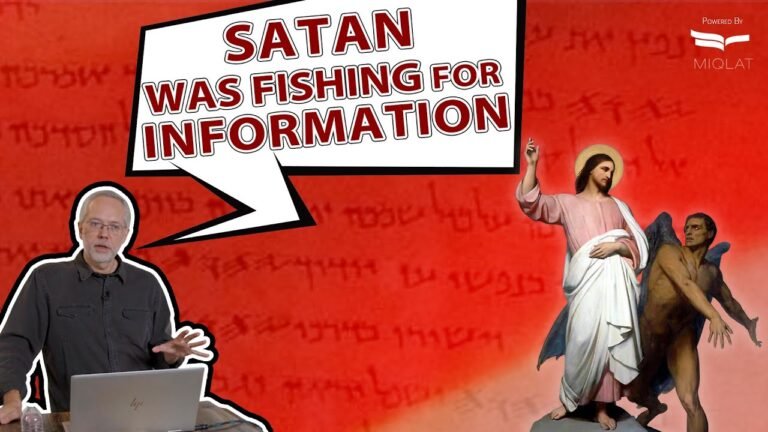The Meaning and Significance of Ma-ra-na-tha
In a world often overshadowed by chaos and uncertainty, the ancient word ma-ra-na-tha emerges as a beacon of hope and spiritual awakening. Derived from Aramaic, this powerful term translates to Come, Lord! and has resonated through centuries, symbolizing a longing for divine presence and guidance. As we explore its rich history and profound significance, we uncover the transformative potential it holds for individuals seeking solace and inspiration in their daily lives. Join us on a journey through faith, connection, and the enduring impact of this timeless expression.
What is the meaning of Maranatha?
Maranatha, an Aramaic expression, carries profound significance within Christian liturgy and scripture. Used by Paul in 1 Corinthians 16:22, it translates to the fervent invocation, “Our Lord, come!” This phrase not only encapsulates a longing for divine presence but also reflects the early Christian community’s anticipation of Christ’s return.
Incorporated as a closing blessing in Paul’s letter to the Corinthians, Maranatha serves as a powerful reminder of faith and hope. It resonates through the ages, inviting believers to remain steadfast in their spiritual journey while eagerly awaiting the fulfillment of God’s promises. The use of this phrase underscores the intimate connection between worship and eschatological expectation within the early Church.
What does Maranatha mean to Christians?
Maranatha is a powerful declaration among Christians, embodying their deep yearning for the return of Jesus Christ. This Aramaic phrase, which can be translated as “Come, O Lord,” reflects the hope and anticipation of believers for the fulfillment of God’s promise to restore creation and establish His eternal kingdom. It serves as both a prayer and a proclamation, reminding the faithful of their longing for divine intervention in a world often filled with turmoil.
In the context of 1 Corinthians 16:22, Maranatha takes on a dual significance. It not only highlights the urgency of loving the Lord but also underscores the expectation of His imminent return. By invoking this phrase, Christians affirm their commitment to Christ and express a desire for His presence in their lives and in the world around them. It acts as a rallying cry, uniting believers in their shared faith and hope.
Ultimately, Maranatha encapsulates the essence of Christian eschatology, focusing on the promise of redemption and the eventual restoration of all things. It inspires believers to remain steadfast in their faith, encouraging them to look forward to the day when Christ will return to fulfill His promises. Through Maranatha, Christians not only affirm their love for the Lord but also invite His presence into their lives, fostering a sense of hope and purpose in their spiritual journey.
What does Maranatha mean?
Maranatha, a term rooted in early Christian tradition, embodies a profound yearning for the presence of the divine. Translated as “Come, Lord!” in the Catechism of the Catholic Church, it reflects the faithful’s anticipation of Christ’s return, underscoring a deep spiritual longing that resonates through the ages. This simple yet powerful phrase serves as a reminder of hope and the expectation of salvation.
In the Latin Church, Maranatha takes on an additional significance, having been employed as a solemn formula of excommunication alongside “anathema.” This dual usage highlights its weight within ecclesiastical contexts, where it not only calls for the return of the Lord but also signifies a clear demarcation of faith. Thus, Maranatha stands as both a prayerful plea and a serious declaration within the Christian community.
Unveiling the Depths of a Sacred Phrase
In a world often overshadowed by noise and chaos, the sacred phrase emerges as a beacon of tranquility, inviting us to explore its profound significance. Each word resonates with layers of meaning, urging us to delve deeper into our own consciousness and the collective human experience. This phrase, steeped in tradition and wisdom, serves not only as a spiritual mantra but also as a reminder of our interconnectedness. As we reflect on its essence, we uncover a wellspring of inspiration that encourages introspection, fosters compassion, and ignites a journey toward enlightenment. Embracing this sacred phrase can transform our perspective, illuminating the path to harmony within ourselves and the world around us.
Exploring the Spiritual Resonance of Ma-ra-na-tha
The phrase “Ma-ra-na-tha,” an ancient Aramaic expression translating to “Come, Lord,” carries profound spiritual significance that transcends its linguistic roots. This evocative call reflects a deep yearning for divine presence and connection, resonating through centuries of Christian tradition. For many believers, it encapsulates both an invitation for Christ’s return and a reminder of the sacredness inherent in everyday life. Its rhythmic cadence invites meditation, fostering a space where the sacred and the mundane intertwine, encouraging individuals to seek a deeper relationship with the divine.
As we delve into the spiritual resonance of Ma-ra-na-tha, we uncover a rich tapestry of hope, anticipation, and communal unity. This phrase, often echoed in prayers and liturgies, serves as a powerful reminder of the collective longing for peace and salvation in a turbulent world. Engaging with Ma-ra-na-tha invites us to reflect on our own spiritual journeys, urging us to embrace moments of stillness and contemplation. In this way, it not only connects us to a broader spiritual heritage but also inspires a personal quest for understanding and harmony in our lives.
A Journey Through Time: The Significance of Ma-ra-na-tha
Ma-ra-na-tha, an ancient Aramaic phrase meaning “Come, Lord,” carries profound significance that transcends its historical context. Rooted in early Christian liturgy, it serves as a powerful reminder of hope and anticipation, echoing the longing for divine presence and intervention in a world often marked by uncertainty. As believers throughout the centuries have embraced this simple yet profound declaration, it has woven itself into the fabric of faith, inspiring countless individuals to seek deeper connections with the divine. This journey through the ages illustrates not only the evolution of spiritual expression but also the enduring human desire for guidance and reassurance in times of need.
The Power of Presence: Understanding Ma-ra-na-tha
In a world filled with distractions and constant noise, the concept of presence has never been more vital. The term “Ma-ra-na-tha,” an Aramaic phrase meaning “Come, Lord,” encapsulates the longing for divine presence and connection. This ancient invocation serves as a reminder to ground ourselves in the moment, fostering a deeper relationship with both the spiritual and the tangible aspects of life. By embracing this call, we can cultivate mindfulness and awareness, steering our focus away from the chaos of modern living.
Understanding Ma-ra-na-tha invites us to explore the intersection of our daily lives and our spiritual aspirations. It encourages us to pause, reflect, and engage fully with our surroundings, fostering a sense of gratitude for the present moment. When we acknowledge the significance of being truly present, we unlock a powerful tool for transformation. This practice not only enhances our personal well-being but also enriches our interactions with others, creating a ripple effect of positivity in our communities.
Ultimately, the essence of Ma-ra-na-tha lies in its call to action: to invite the sacred into our everyday experiences. By consciously seeking to embody this presence, we can inspire ourselves and those around us to live more authentically and purposefully. As we embrace this journey, we discover that the power of presence is not merely an abstract idea, but a tangible force that can elevate our lives, deepen our connections, and illuminate our path.
The term ma-ra-na-tha encapsulates a profound sense of hope and urgency, resonating through centuries as a call for awakening and transformation. Its rich historical context and spiritual significance remind us of the power of collective yearning for change. As we navigate the complexities of our modern world, embracing this ancient cry can inspire a renewed commitment to compassion, community, and a shared vision for a brighter future.






